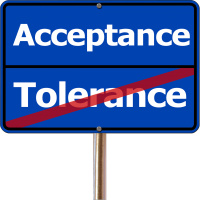“People rise up in the church and begin teaching doctrine that does not accord with the pattern of sound words entrusted to us in Scripture. Others stand up against that error and criticize it for not aligning with biblical truth. Yet still other men push back against that and say, “Hey, let’s not be so rigid and dogmatic, OK? These folks are aiming to ground their teachings in Scripture; they just have a different interpretation than you do. Who’s to say that our interpretation is better than their interpretation? After all, the text isn’t all that clear anyway. We should hear them out. We should give them a platform. We ought to be tolerant of a diversity of views.”
This is what happened in the Corinthian church…”
(Mike Riccardi – The Cripplegate) “For you, being so wise, tolerate the foolish gladly. For you tolerate it if anyone enslaves you, anyone devours you, anyone takes advantage of you, anyone exalts himself, anyone hits you in the face.” – 2 Corinthians 11:19–20 –
The Corinthians had a tolerance problem. Earlier in the chapter, Paul said something similar. “For if one comes and preaches another Jesus whom we have not preached, or you receive a different spirit which you have not received, or a different gospel which you have not accepted, you bear this beautifully.” They bear with false teaching. They tolerate the intolerable.
A Redefinition of Tolerance
In the last 10 to 15 years, the worldview of postmodernism has come to dominate the collective intellectual consciousness of western society. And perhaps the pinnaclevirtue of postmodernism is tolerance.
Now, contemporary postmodern tolerance is not what English-speaking peoples have always understood the word tolerance to mean. A person was judged to be tolerant if, though he held to his views strongly, believed them to be absolute truth, and believed just as strongly that all other mutually exclusive views were absolutely wrong, he nevertheless insisted that others had the right to disagree with his deeply-held convictions. He believed in his convictions unwaveringly, and even believed that everyone else should believe what he believed. But he didn’t demand agreement or try to coerce consensus. He tolerated the existence of differing opinions, even on what he believed was non-negotiable truth. The old view of tolerance was well-captured in the oft-quoted aphorism, “I disapprove of what you say, but I will defend to the death your right to say it.”
But the postmodern version of tolerance is of a totally different sort. To today’s culture, tolerance is no longer the idea that wrong views, though wrong, nevertheless have the right to exist and to be heard in public discourse. Now, you’re only tolerant if you believe that no position is any more or less true, right, or valid than any other view. In his book, The Intolerance of Tolerance, D. A. Carson explains the shift this way:
“The new tolerance suggests that actually accepting another’s position means believing that position to be true, or at least as true as your own. We move from allowing the free expression of contrary opinions to the acceptance of all opinions; we leap from permitting the articulation of beliefs and claims with which we do not agree to asserting that all beliefs and claims are equally valid.” (3–4)
And with that revisionist definition of tolerance comes also a revisionist definition of intolerance. Which is a big deal. Because there are few worse charges to be accused of today than being intolerant. Since tolerance no longer means tolerating the existence of opposing views but instead asserting that all views are equally valid, intolerance is disagreeing with the notion that no one position is more true, valid, or trustworthy than another. If you insist that someone is unambiguously and unequivocally wrong about something, you are intolerant. You’re an uncharitable, arrogant bully. Perhaps even a bigot.
Research
